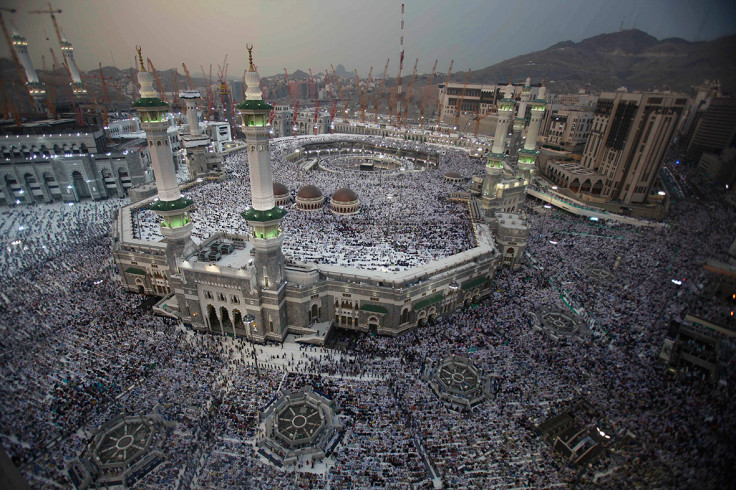Hajj 2016: Saudi Arabia introduces electronic identification bracelets for pilgrims' safety
The information-loaded bracelets will help authorities keep track of pilgrims' movements.
Saudi Arabia said it is planning to launch electronic identification bracelets for pilgrims travelling to Mecca for Hajj, the world's largest annual gathering of Muslims. The move comes amid security concerns and is aimed at tackling untoward incidents during the pilgrimage.
The bracelets will contain personal information such as passport numbers and addresses as well as medical information of individual Hajj pilgrims that will help authorities identify them and provide care, according to Saudi Press Agency.
The e-bracelets are water-resistant and are also connected to GPS, which will not only help authorities keep track of pilgrims' movements, but will also instruct pilgrims about the timings of prayers and other rituals at Mecca. Through the tracking device, the pilgrims will also be connected to a multi-lingual help desk that will guide non-Arabic speaking pilgrims about the various rituals scheduled at the holy Islamic event.
Local media reported that around 1,000 new CCTV cameras have also been installed at Mecca's Grand Mosque as part of security measures. The cameras, linked to control rooms, will be overseen by special forces who will keep a close watch on pilgrims' movements.
Around 769 pilgrims died in a stampede in 2015 when thousands of them rushed towards a walkway intersection in the Mecca district of Mina. Around 400 Iranian nationals were killed in the stampede. The tragedy was the deadliest for the pilgrimage in 25 years.
Iran questioned Saudi's level of preparedness and said that it will not send pilgrims to this year's gathering. However, Saudi's King Salman vowed to improve arrangements at the annual event.
The Saudi authorities have so far spent billions of dollars to improve infrastructure and transport facilities over the years in Mecca, where every year, over three million pilgrims participate in the six-day ritual. Followers of Islam regard it is a religious obligation to take part in the pilgrimage at least once in their lifetime, if health and finances permit.

© Copyright IBTimes 2025. All rights reserved.





















